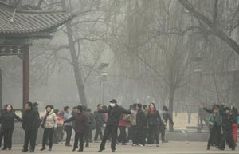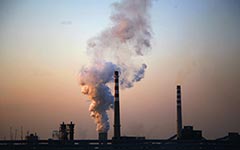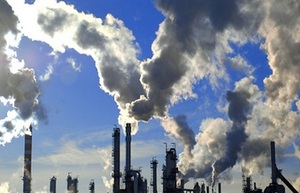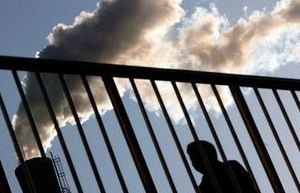Climate change spurs carbon credit trading
(China Daily) Updated: 2014-06-10 07:54Global collaboration on climate change has entered a new stage as challenges brought by global warming have become increasingly urgent, said Xie Zhenhua, vice-chairman of China's National Development and Reform Commission on Monday.
 |
 |
China must also conform to an internal timetable to switch from its high-carbon development model to a more sustainable path, as seen by the heavy smog blanketing many of its cities in recent years, he said.
The 12-day meeting in Bonn is viewed as an opportunity to make further progress and lay the foundations of reaching an agreement in 2015 to address climate change.
Xie said that from 2005 to 2013, China reduced the amount of carbon dioxide it burns per capita of GDP by 28.6 percent, the equivalent of a 2.5-billion-ton reduction in greenhouse gases.
Arduous efforts must be made to put the five-year targets on energy savings and emissions reduction within reach by 2015, he said. Measures include holding accountable local officials who fail to fulfill emissions reduction targets, and restrictions on new energy-guzzling projects will be strictly enforced.
"China will behave in a very responsible way for Chinese people and the world and the nation will try it best to peak as early as possible," Bloomberg quoted Xie as saying last week in Bonn.
The nation will rely more on market mechanisms in cutting emissions. China plans to set up a nationwide carbon emissions trading market in three years, Sun Cuihua, deputy director of the climate change department of the NDRC, said at the 5th Earth Temple Forum in Beijing on Monday.
"The establishment of an emissions-trading scheme needs a cap, but the item has various meanings-it could refer to an absolute cap, or caps on industries and companies, or growth caps," Sun said. "All those options are being studied ... It's still too early to talk about setting an absolute cap for national emissions trading in China," she added.
|
 |
 |
| China launches carbon trading in Hubei | Tianjin starts carbon trading market |
- China 'incredibly innovative' in many areas: Apple CEO
- City official: Guangzhou further committed to opening-up
- Jack Ma: Globalization backed by technology will cut inequality
- HNA confirms interest in ASEAN's infrastructure investment
- Comments on Xi's letter to 2017 Fortune Global Forum
- China to create more opportunities for the world: Xi
- US tax cuts impact on China two-sided: economists
- Chinese enterprises job fair to be held in Sri Lanka

















